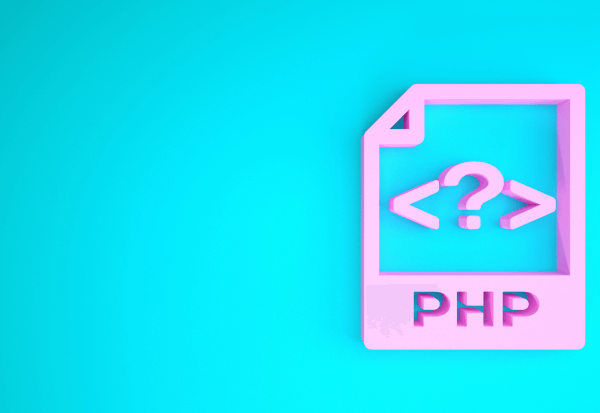Laravel is a PHP-based web application framework with expressive, elegant syntax. Taylor Otwell created it in June 2011 as an alternative to CodeIgniter (also a PHP-based framework) to improve web development and make coding simpler, faster, and easier.
With over 72,000 stars on GitHub, Laravel is the most demanded and exclusive PHP framework, with around 23.2K forks for web development. This powerful, free & open-source framework comes with codes, a feature-packed toolkit, and built-in security functions.
Laravel uses the model–view–controller (MVC) architecture. Its architectural patterns are majorly based on Symfony, another free and open-source PHP web application framework that provides many reusable PHP component libraries.
Laravel provides pre-built frameworks to developers to make their coding easy and powerful. It has already published nine stable versions of updates and often provides security updates to ensure an enriched user experience and a developer-friendly web approach. Laravel is fine-tuned for building professional web applications and is also ready to handle enterprise workloads.
Top PHP framework as per GitHub stars:


Most popular backend Framework:
(https://statisticsanddata.org/data/most-popular-backend-frameworks-2012-2022/
https://i.ytimg.com/vi/-RTaFJAgWSU/maxresdefault.jpg)

Laravel vs CodeIgniter (https://www.saashub.com/compare-laravel-vs-codeigniter?ref=compare)

Why Laravel?
A Progressive Framework
Laravel provides robust tools for dependency injection, unit testing, queues, real-time events, and many more.
A Scalable Framework
Laravel is incredibly scalable. Using the scaling-friendly nature of PHP, Laravel enhanced itself using distributed cache systems like Redis.
A Community Framework
Laravel combines the best packages in the PHP ecosystem to offer the most robust and developer-friendly framework available. In addition, thousands of talented worldwide developers have contributed to the framework. It also has an open-source REST API management system that helps develop state-of-the-art APIs.
Advantages of Laravel
1. MVC Support and Object-Oriented Approach
The model-view-controller (MVC) architectural pattern ensures clarity between the logical (Model) and presentation (View) layer via Controller, which results in overall performance improvement, readability, scalability & provides an easy-to-maintain option.
Using 20+ pre-installed modular and object-oriented libraries, Laravel provides some of the most wanted features, like a complete Authorization & Authentication system, Encryption, and CSRF Protection.
The life cycle of Laravel user requests:

2. Eloquent ORM
Object Relational Mapping (ORM), called Eloquent in Laravel, is an out-of-the-box feature. Using the “Active Record Pattern” architecture makes database interaction, migration, and maintaining relationships easy. It supports PostgreSQL, SQLite, and MySQL. Using these features, developers do not need to know SQL syntax to write SQL queries.
3. Templating engine
The Inbuild template engine, called Blade templating, is another reason to call Laravel one of the best PHP frameworks. The blade allows the creation of reusable components with a provision of dynamic tent seeding. This template engine helps to create views by compiling templates in plain PHP code & cached them to improve performance. Blade also provides its control structures, such as conditional statements and loops, which are internally mapped to their PHP counterparts.
4. Artisan Console
Laravel provides its command line interface named “Artisan” & few built-in commands. Using those commands to create and publish packages, assets management, database migrations, seeding, and generate basic code of controllers -models which take only a few seconds. These commands ensure to creation and maintenance of proper code structure.
5. Security
Laravel’s primary concern is security and has inbuilt security functions like
- Authentication system
- Password hashing
- Protection against CSRF & XSS
- SQL injection
- Cookie protection
- built-in encryption mechanism
6. Packaging System
Packages are the primary way of adding functionality or improving the functionality of Laravel’s basic features. Laravel packages are a collection of routes, controllers, and views configured to add or extend the functionality of a Laravel application. The Supporting Package concept of Laravel opens the way to accelerate development and improve the out-of-box functionality.
7. Multilingual support:
Laravel provides a locale for multi-language support for a large demographic. Its localization feature offers a convenient way to retrieve strings in various languages to create multilingual sites.
8. Opensource
Being an open-source framework, Laravel developers grant these benefits:
- Full transparency and collaboration on the development
- Support of a dedicated Laravel developer community
- New modules and plug-ins are installed at regular intervals
- Elimination of any ambiguities when needed
- Great tutorials designed by a vast and growing community
- Much more room for customization, modification, and extension than in other frameworks
- Access to the sought-for solutions to encountered problems provided by Laravel experts worldwide
- Enterprise solutions are also available
9. Support IoT:
Laravel is now collaborating with the conceptual notion of IoT to make things better and more efficient. IoT devices transmit a tremendous volume of data, which Laravel safely wraps. Using the “Raspberry Pi Laravel” model, Laravel can interact with IoT systems (https://www.cloudways.com/blog/internet-of-things-tutorial-using-raspberry-pi-laravel/?id=46703)
10. Other features
- Integration with Mail Services
- Automation of Testing Work
- Configuration Error and Exception Handling
- Laravel is playing a major role in the life cycle of single page applications.
- Laravel interacts with blockchain API efficiently through third-party packages and has no vulnerabilities.
- Laravel Mix is an in-built asset compilation package. It helps to store different kinds of data in other places or folders and avoid being confused about which data the system needs.
- Laravel Vapor is a serverless deployment platform for Laravel with auto-scaling advantages powered by AWS Lambda. The most significant benefit of this infrastructure is that it allows running code without configuring and managing the servers.
- Laravel Forge is a server management tool built for application deployment services.
Disadvantages of Laravel
- The downside of regular updates is that older product versions quickly become buggy.
- Laravel is a lightweight framework, so it has less inbuilt support when compared to Django and Ruby on Rails. This problem can be solved by integrating third-party tools, but the tasks can become tedious and complicated for large or custom websites.
- Being a new framework, Laravel is not as mature as many other frameworks. The composer is not so strong as compared to npm (for Node.js) or Ruby Gems and pip (for python)
- Many methods included in the reverse routing process are complex.
- It’d be great if they could provide NoSQL support out of the box.
Types of Web Applications built with Laravel.
Building robust, full-stack applications in PHP using Laravel is effortless compared to other PHP frameworks. Laravel is great for small to medium-sized projects, internal business tools, or where you need to prototype.
Laravel may serve as a full-stack framework. Laravel efficiently routes requests of an application and renders frontend via Blade templates or a single-page application hybrid technology. Laravel may also serve as an API backend to a JavaScript single-page application or mobile application.

(Source: https://lenac1884.medium.com/why-should-you-choose-laravel-for-your-web-development-project-d9bde1f88f29)
These are the well-known sites that are using Laravel:
![]()
(Source: https://laravel.com/)
Using Laravel, the below types of websites can be created:
- E-learning websites & Educational Blogging Platform
Laravel development is well suited for educational and e-learning websites & blogging applications. It provides scalability and allows the management of a constantly growing database.
Canvas (Try canvas.app) – a content publishing platform built on the Laravel framework. (Ref: https://w3techs.com/sites/info/trycanvas.app)
- B2B websites
Web development with Laravel can help to create highly functional B2B websites that will make it easier for B2B clients to outsource services and help organize the tasks in a high-security environment.
- E-commerce platforms & Online Stores
Bagisto (https://bagisto.com/en/) – an e-commerce platform built on the Laravel framework.
- Patient Portals & Hospital Management System
- University & School Management Systems
- ERP System & Management
- CRM System
- Booking platforms
- Forum websit
Some Top listed websites built in Laravel:
Source: (https://infostride.com/sites-built-with-laravel/, https://trends.builtwith.com/websitelist/Laravel)
Laravel partners: https://partners.laravel.com/partners
Conclusion
Laravel is the best choice for developing trustworthy, quick, and feature-rich websites and mobile apps. It can bring long-term benefits to websites by aiming to increase enterprise competency in building high-quality, scalable websites that can create more traffic. Laravel, on the other hand, makes developers’ lives simpler in several ways, from enhanced performance to outstanding community support.
Source:
https://en.wikipedia.org/wiki/Laravel

is a senior technical lead with hands-on experience in different PHP-based well-known frameworks like Laravel and Symphony and has participated across all product life cycle phases. She also mentors the technical team on the latest technologies for ongoing and upcoming projects. She is a passionate coder and actively takes part in frontend (ReactJS, Node JS) and backend coding (PHP, Lambda functions, API gateways).
In addition to her work, she loves to trek and has taken quite a few expeditions to the Himalayas.




